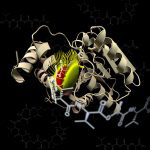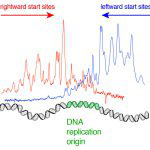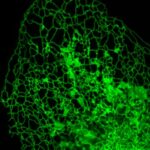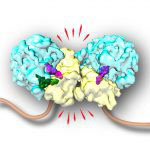
Enzymes are proteins that accelerate the conversion of substrate molecules into product molecules. Many enzymes accelerate reactions through formation of chemical bonds to their substrates, but the complexes formed this way are difficult to characterise, as they are intrinsically short-lived.




